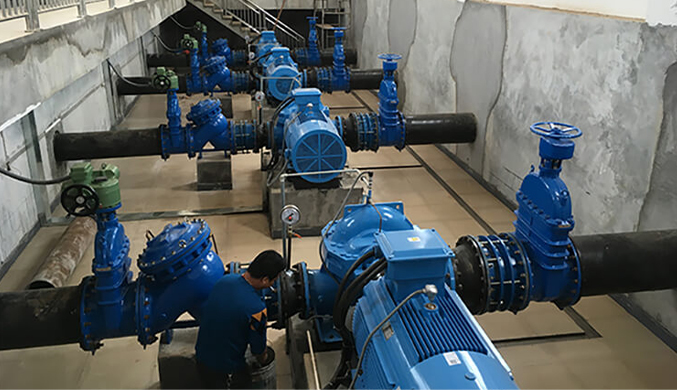Indonesian
- Afrikaans
- Albanian
- Amharic
- Arabic
- Armenian
- Azerbaijani
- Basque
- Belarusian
- Bengali
- Bosnian
- Bulgarian
- Catalan
- Cebuano
- Corsican
- Croatian
- Czech
- Danish
- Dutch
- English
- Esperanto
- Estonian
- Finnish
- French
- Frisian
- Galician
- Georgian
- German
- Greek
- Gujarati
- Haitian Creole
- hausa
- hawaiian
- Hebrew
- Hindi
- Miao
- Hungarian
- Icelandic
- igbo
- Indonesian
- irish
- Italian
- Japanese
- Javanese
- Kannada
- kazakh
- Khmer
- Rwandese
- Korean
- Kurdish
- Kyrgyz
- Lao
- Latin
- Latvian
- Lithuanian
- Luxembourgish
- Macedonian
- Malgashi
- Malay
- Malayalam
- Maltese
- Maori
- Marathi
- Mongolian
- Myanmar
- Nepali
- Norwegian
- Norwegian
- Occitan
- Pashto
- Persian
- Polish
- Portuguese
- Punjabi
- Romanian
- Russian
- Samoan
- Scottish Gaelic
- Serbian
- Sesotho
- Shona
- Sindhi
- Sinhala
- Slovak
- Slovenian
- Somali
- Spanish
- Sundanese
- Swahili
- Swedish
- Tagalog
- Tajik
- Tamil
- Tatar
- Telugu
- Thai
- Turkish
- Turkmen
- Ukrainian
- Urdu
- Uighur
- Uzbek
- Vietnamese
- Welsh
- Bantu
- Yiddish
- Yoruba
- Zulu
Telephone: +86 13120555503
Email: frank@cypump.com
Des . 12, 2024 11:13 Back to list
ceramic slurry pump
The Importance of Ceramic Slurry Pumps in Industrial Applications
Ceramic slurry pumps have emerged as an essential component in various industries, primarily due to their unique properties suited for handling abrasive and corrosive materials. These pumps are specifically designed to manage thick and abrasive slurries, which often contain a mix of solid particles suspended in a liquid. Industries such as mining, ceramics, wastewater treatment, and chemical processing greatly benefit from the capabilities of ceramic slurry pumps.
One of the most significant advantages of ceramic materials is their exceptional resistance to wear and corrosion. Traditional pumps made from metals can quickly degrade when exposed to harsh working conditions, such as those found in mining or wastewater treatment. In contrast, ceramic components provide a longer service life, reducing the need for frequent replacements and maintenance. This durability is crucial for optimizing operational efficiency and minimizing downtime, which can be costly for industries relying on continuous production processes.
Ceramic slurry pumps are engineered to maintain high performance under extreme conditions. They can efficiently transport slurries that would typically damage standard pumps, including materials like coal slurry, sand, and mineral pulp. The design of these pumps often features specialized impellers and casings that enhance their ability to manage these challenging fluids. By utilizing ceramic materials, manufacturers can create pumps that are not only robust but also capable of maintaining high flow rates with excellent volumetric efficiency.
ceramic slurry pump

In addition to their mechanical strength, ceramic slurry pumps are known for their ability to handle a wide range of temperatures and pressures
. This versatility makes them suitable for various applications, from transporting industrial sludge to aiding in the production of ceramics. The ability to operate efficiently under different process conditions allows industries to diversify their operations and adopt ceramic slurry pumps without the need for multiple types of equipment.Environmental concerns are increasingly influencing industrial operations, and ceramic slurry pumps align well with these sustainability goals. Since these pumps last significantly longer than their metal counterparts, less waste is generated through frequent replacements. Moreover, the energy efficiency of ceramic pumps often leads to lower operational costs, reducing the environmental footprint associated with energy consumption in industrial processes.
The manufacturing process for ceramic slurry pumps has also evolved with advancements in technology. The ability to engineer and produce high-quality ceramic materials has improved significantly, leading to the creation of complex geometries and more precise control over pump design. Innovations in ceramic coating technologies have further enhanced the performance and durability of these pumps, making them more accessible to various industries.
In conclusion, ceramic slurry pumps represent a critical advancement in the field of industrial pumping solutions. Their durability, efficiency, and resistance to wear make them an ideal choice for industries that handle abrasive and corrosive materials. As companies seek to increase efficiency while minimizing environmental impact, the adoption of ceramic slurry pumps is likely to grow. Whether in mining, wastewater treatment, or chemical processing, these pumps will play a pivotal role in shaping the future of industrial operations, ensuring that companies can meet the demands of modern production while adhering to sustainability practices. The continued development of ceramic materials and pumping technologies promises even greater innovations, ensuring that ceramic slurry pumps remain at the forefront of industrial pumping solutions for years to come.
-
ISG Series Vertical Pipeline Pump-Chi Yuan Pumps Co., LTD.|High Efficiency&Energy Conservation
NewsJul.30,2025
-
ISG Series Vertical Pipeline Pump - Chi Yuan Pumps Co., LTD.|Advanced Hydraulic Design&Energy-Efficient Solutions
NewsJul.30,2025
-
ISG Series Vertical Pipeline Pump - Chi Yuan Pumps Co., LTD.
NewsJul.30,2025
-
ISG Series Vertical Pipeline Pump - Chi Yuan Pumps Co., LTD.|energy-efficient fluid handling&industrial durability
NewsJul.30,2025
-
ISG Series Vertical Pipeline Pump - Chi Yuan Pumps | Advanced Engineering&Industrial Efficiency
NewsJul.30,2025
-
ISG Series Pipeline Pump - Chi Yuan Pumps | High Efficiency, Energy Saving
NewsJul.30,2025










